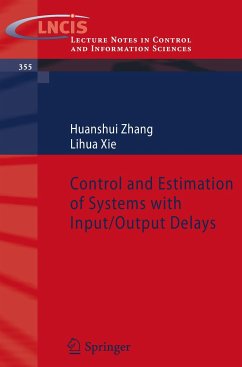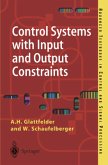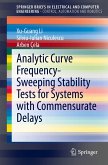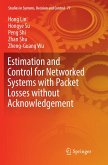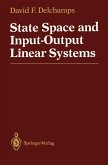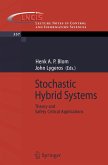Time delay systems exist in many engineering ?elds such as transportation, communication, process engineering and more recently networked control s- tems. In recent years,time delaysystems haveattracted recurring interests from research community. Much of the research work has been focused on stability analysis and stabilization of time delay systems using the so-called Lyapunov- Krasovskii functionals and linear matrix inequality (LMI) approach. While the LMI approach does provide an e?cient tool for handling systems with delays in state and/or inputs, the LMI based results are mostly only su?cient and only numerical solutions are available. For systems with knownsingle input delay, there have been rather elegant- alytical solutions to various problems such as optimal tracking, linear quadratic regulation and H control. We note that discrete-time systems with delays can ? usually be converted into delay free systems via system augmentation, however, theaugmentationapproachleadsto muchhigher computationalcosts,especially for systems of higher state dimension and large delays. For continuous-time s- tems,time delayproblemscaninprinciple betreatedby thein?nite-dimensional system theory which, however,leads to solutions in terms of Riccati type partial di?erential equations or operator Riccati equations which are di?cult to und- stand and compute. Some attempts have been made in recent years to derive explicit and e?cient solutions for systems with input/output (i/o) delays. These include the study ontheH controlofsystemswith multiple input delaysbased ? on the stable eigenspace of a Hamlitonian matrix [46].
Bitte wählen Sie Ihr Anliegen aus.
Rechnungen
Retourenschein anfordern
Bestellstatus
Storno

